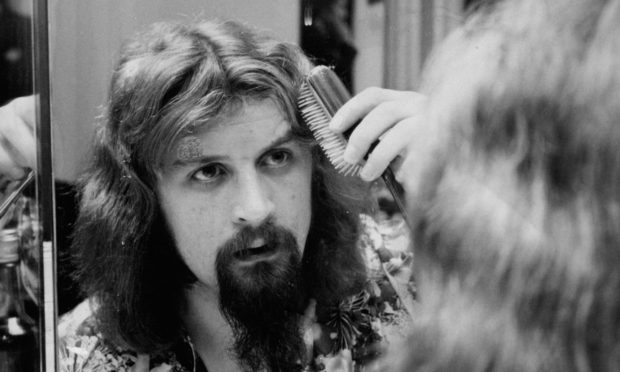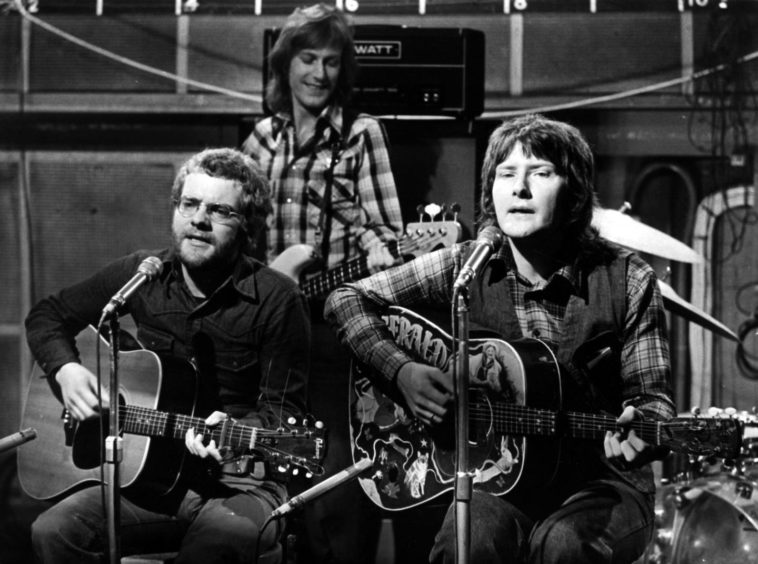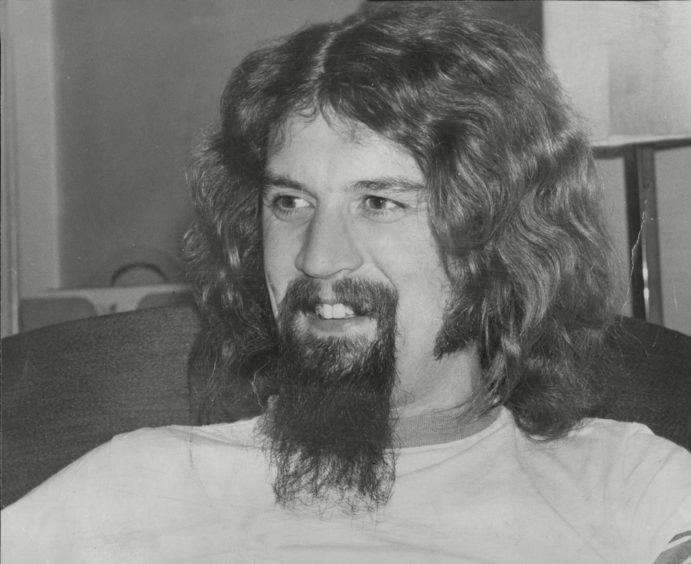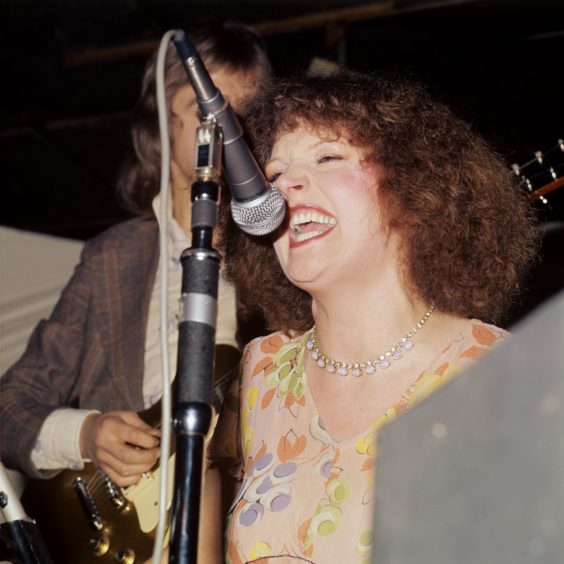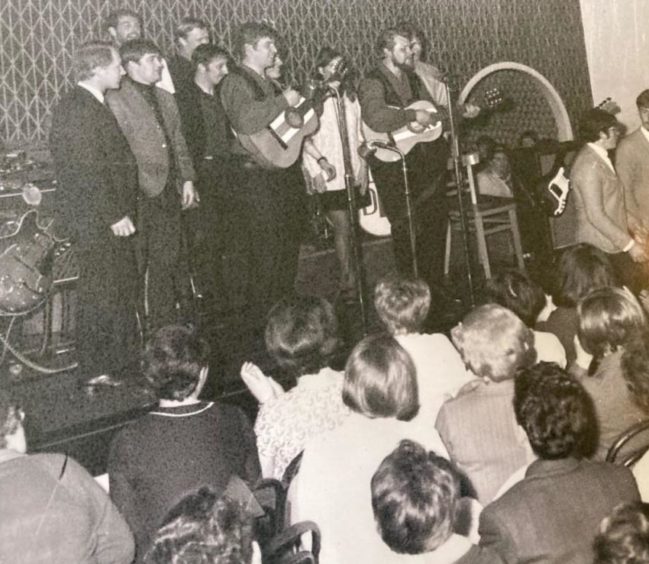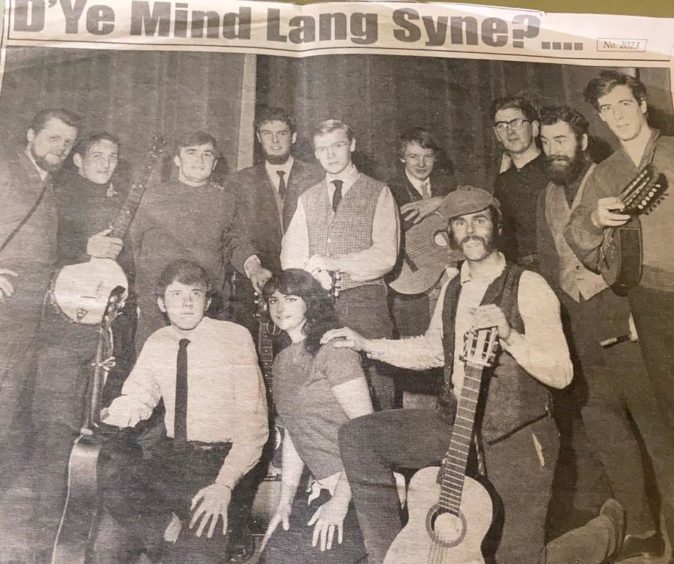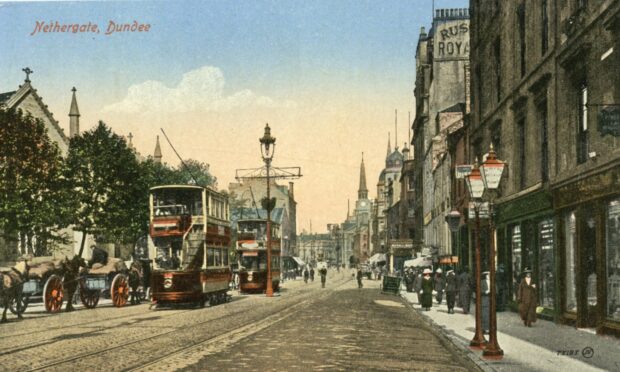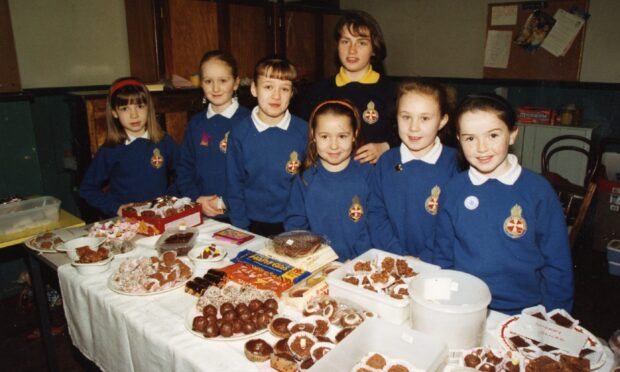It was a venue which attracted the cream of the crop through its doors during the Swinging Sixties – including several Scots who subsequently earned international acclaim.
But the canny officials at the Abbey Folk Club in Arbroath obviously had a keen eye to match their shoestring budget and brought a string of leading luminaries to Angus after being established in the summer of ’65.
Imagine what it might have cost to book the Big Yin Billy Connolly and Baker Street singer-songwriter Gerry Rafferty just a few years later by they time they were regularly appearing on such shows as Parkinson and Top of the Pops.
Yet the club compere John Knox has revealed how the duo were persuaded to perform in tandem at the premises for the princely sum of….£28.
And Barbara Dickson, the singer and actress, and The Corries, who wrote the country’s unofficial anthem Flower of Scotland, were hired for £15 apiece.
No wonder this Abbey was a cathedral for folk fans during its halcyon days.
Opportunity Knox for Scotland’s leading folkies
Mr Knox, an accomplished musician in his own right, worked as compere at the Abbey Club from 1968 to 1973 and enjoyed witnessing many stellar performances from the biggest names on the circuit.
This was at the time when Arbroath was gaining a reputation as a holiday destination in Scotland – and it coincided with the period when the folk scene was moving away from having just a cult following into the mainstream.
Not that there was anything conventional about some of the larger-than-life characters who cropped up in Mr Knox’s conversation, such as Ian “Smokie” Gray, a long-time scriptwriter for such classic comic strips as Dennis the Menace, Minnie the Minx, The Bash Street Kids and Desperate Dan.
Mr Gray, who died in 2007, was also the co-creator of Dennis’s wild and woolly dog Gnasher, and became renowned for his passion for folk music and the countryside, and his exuberant sense of humour.
However, he was less than impressed with the patter served up by Connolly after he and Rafferty had paired up for that aforementioned cut-price gig.
Mr Knox recalled: “Billy and Gerry were an unusual combination who sung a few songs together and then did their own thing the rest of the time.
“Smokie Gray was among the crowd at the concert. And he advised Billy to stick to the singing and banjo playing because he ‘wasna a’ that funny’.”
The places were packed most evenings
Mr Knox performed in a group called The Gaugers and, when he wasn’t whipping up a storm with the band, he announced on stage the litany of well-known faces who flocked to the Abbey Club year in, year out.
Mr Gray, for his part, was enthusiastically involved in the Arbroath folk music revival from the 1960s and became a singer and guitarist, who was much-loved in his home town and further afield for his self-penned comic songs.
These hard-working young lads were not only enthusiastic about their own music, but had the vision to realise that audiences were keen to embrace new talent in a grassroots setting.
Their message was simple: why travel to Glasgow, Edinburgh, Dundee or Aberdeen if you can keep it local?
So they set about creating an environment which would satisfy not only folk purists, but command bigger crowds to join their club. And it paid dividends.
The cast list was a Who’s Who of Scottish Folk
Mr Knox said this week: “The first meeting of the Abbey Folk Club took place in July 1965 and the club ran for about 10 years in the Seaforth and then the Windmill hotel.
“Arbroath, at that time, was a popular holiday resort which meant that we filled the ballrooms at both hotels for six weeks in the summer which made sure the club could run all year and pay for the best guests.
“These included The Corries, Archie Fisher and Barbara Dickson whose fee was £15.
“Then there were The Humblebums, comprising Billy Connolly and Tam Harvey. Gerry Rafferty replaced Harvey in 1970 and the fee for those soon-to-become superstars was £28.
“We also had [Irish singer-songwriter] Christy Moore who was selling out the Barrowlands in Glasgow on a regular basis. And the ‘big three’ of the time: Hamish Imlach, Matt McGinn and Alex Campbell.
“Then there were the likes of Aly Bain, Martin Carthy, [Fairport Convention’s] Dave Swarbrick and The Strawberry Boys – who subsequently became the Strawbs and had a No 1 hit with Part of the Union in 1973.”
Arbroath relished its brief place in the sun
If anybody needs reminding how ephemeral fame can be, there’s proof in the fact that Isla St Clair was another singer who graced the Abbey stage.
Younger readers might be asking “Who?”
But, for at least a decade, this Aberdeen Academy-educated woman was accustomed to dominating the spotlight and, following the release of her debut album, was voted Female Folk Singer of the Year by influential publication New Musical Express.
The Scottish chanteuse became even more famous in the late 1970s when she joined Larry Grayson on the Saturday night show The Generation Game, which was the Strictly or Britain’s Got Talent of its day in terms of attaining viewing figures which most other programmes can only dream about.
But, for her, family came first and she departed our TV screens in the 1980s.
This Abbey road was short-lived
The club’s success was spectacular, but tastes were changing by the mid-1970s, not just in music, but the whole world of travel.
Suddenly, with cheap package holidays available, the prospect of vacations in Arbroath, Burntisland or Bute didn’t hold quite the same appeal.
Yet, while the Abbey’s story was a transient phenomenon, those who were there and savoured the myriad concerts never forgot the experience.
Indeed, there were ample emotions when a reunion was organised.
A last hurrah to the Abbey crowd
As Mr Knox said: “The club reformed in 2005 for a ‘one off’ concert to celebrate Tartan Week and we didn’t know what the reaction might be.
“But we were astounded when more than 100 filled the Seaforth Hotel. Then, for the next ten years, around £17,000 was raised for local charities.
“The club decided to hold one last gig in Hospitalfield House in 2015 to celebrate 50 years.
But unfortunately, Janet Williamson, who had long been the only female member of the group, died after being diagnosed with a mystery illness and we all took the decision to call it a day.”
That last hurrah might have been shrouded in sadness.
But the Abbey was a genuinely uplifting story for those who brought so much joy to Arbroath.
